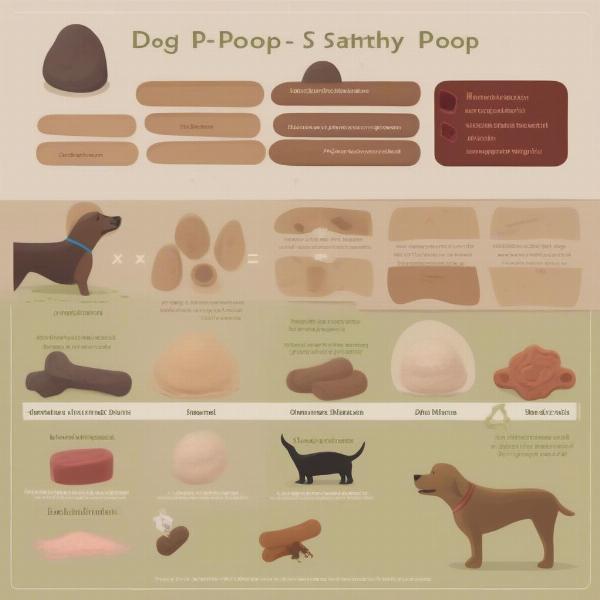The search term “dog shit strain” is unusual and likely reflects a misunderstanding or a miscommunication related to dog health, specifically regarding their feces. While “strain” can refer to types of cannabis, in the context of dog care, it might be related to the dog straining to defecate or concerns about the consistency and appearance of their stool. This article aims to address the possible intentions behind this search, providing clear and helpful information about dog poop, its variations, and when to be concerned.
When someone searches for “dog shit strain,” they might be worried about their dog experiencing difficulty during bowel movements. This could indicate constipation, which can be caused by various factors such as dehydration, dietary issues, or underlying health problems. Alternatively, they might be concerned about the appearance of their dog’s feces, such as its color, consistency, or the presence of blood or mucus. Understanding what is normal and what isn’t can help owners identify potential health issues early on.
Decoding Dog Poop: What’s Normal and What’s Not
Healthy dog poop is generally firm, but not too hard, and has a consistent brown color. Variations in color and consistency can occur due to diet, hydration, and other factors. For example, a dog eating a high-fiber diet might have larger, softer stools. However, significant changes in poop, especially if accompanied by other symptoms like vomiting, lethargy, or loss of appetite, warrant a visit to the vet.
 Dog Poop Variations
Dog Poop Variations
Straining During Defecation: Causes and Concerns
Straining to defecate, also known as tenesmus, can be a sign of several health issues, including constipation, intestinal blockage, or problems with the anal glands. If your dog is straining, crying, or showing signs of discomfort during bowel movements, it’s essential to seek veterinary attention. Ignoring these signs could lead to more serious complications.
Common Dog Poop Problems and When to Worry
Various factors can affect the appearance and consistency of dog poop. Dietary changes, stress, and certain medications can all cause temporary changes in bowel movements. However, persistent diarrhea, constipation, bloody stool, or black, tarry stool should be investigated by a veterinarian.
What does it mean if my dog is straining to poop but nothing comes out?
If your dog is straining to poop but nothing comes out, it could signify a serious issue like an obstruction in the digestive tract. Immediate veterinary attention is crucial.
Why is my dog’s poop soft and runny?
Soft and runny poop can be caused by dietary indiscretion, stress, or infections. If it persists for more than 24 hours, consult your vet.
When should I be worried about the color of my dog’s poop?
Changes in poop color can be indicative of various health problems. Black, tarry stool can suggest internal bleeding, while bright red blood might indicate bleeding in the lower digestive tract. Any significant change in color warrants a veterinary check-up.
Ensuring Healthy Digestion in Your Dog
Providing a balanced diet, plenty of fresh water, and regular exercise can help promote healthy digestion in your dog. Adding fiber-rich foods to their diet can also help regulate bowel movements and prevent constipation. Regular vet check-ups are crucial for early detection and management of potential digestive issues.
Conclusion
While “dog shit strain” might seem like a strange search term, it highlights the concerns dog owners have about their pet’s health and well-being. Understanding the different aspects of dog poop, its variations, and the potential underlying causes of abnormal bowel movements can help owners address these concerns and ensure their furry friends stay healthy. If you have any concerns about your dog’s poop or their overall health, consult with your veterinarian for proper diagnosis and treatment.
FAQ
-
What is the ideal consistency of dog poop? Healthy dog poop is typically firm but not hard, and a chocolate brown color.
-
How often should my dog poop? Most dogs poop once or twice a day, but this can vary depending on diet, age, and activity level.
-
What does it mean if my dog’s poop is black and tarry? Black, tarry stool can be a sign of bleeding in the upper digestive tract and requires immediate veterinary attention.
-
Is it normal for my dog’s poop to change color occasionally? Slight variations in color can be normal due to dietary changes, but significant or persistent changes should be checked by a vet.
-
Can stress affect my dog’s poop? Yes, stress can cause changes in bowel movements, including diarrhea or constipation.
-
How can I help my dog with constipation? Ensure they have access to plenty of fresh water, add fiber-rich foods to their diet, and encourage regular exercise.
-
When should I contact my vet about my dog’s poop? Contact your vet if you notice any significant or persistent changes in your dog’s poop, especially if accompanied by other symptoms like vomiting, lethargy, or loss of appetite.
ILM Dog is a leading online resource for dog owners worldwide, offering expert advice on all aspects of dog care, from breed selection and health to training, nutrition, grooming, and more. We provide reliable, practical information for both new and experienced dog owners, helping them navigate the joys and challenges of dog ownership. For personalized guidance or to explore our range of dog care products and accessories, contact us at [email protected] or +44 20-3965-8624. ILM Dog is here to help you provide the best possible care for your canine companion.